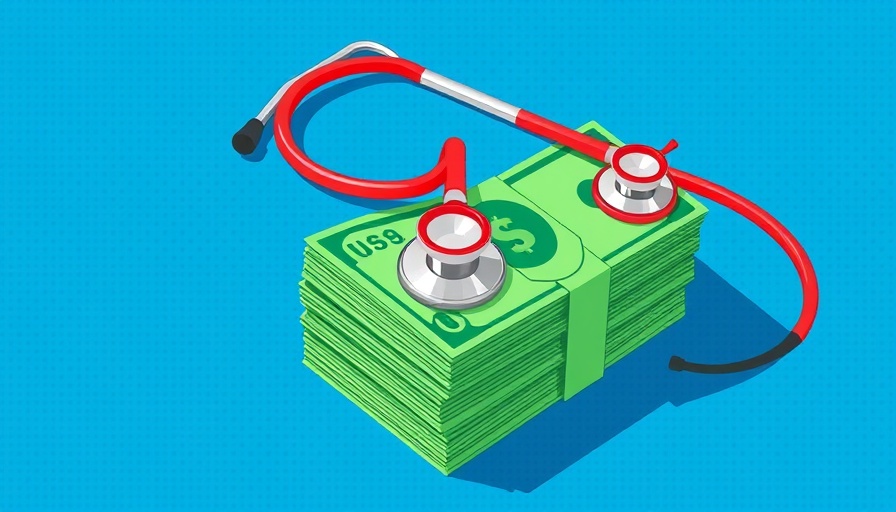
The Surging Costs of Health Insurance: What to Expect in 2026
As we approach 2026, workers across the nation are bracing for a significant spike in health insurance costs. According to the latest findings from the Business Group on Health (BGH), health plan expenses are predicted to surge by an alarming 9%, marking a record high since the group's data tracking began in 2017. This increase comes on the heels of last year’s 8% rise, signaling a distressing trend that could reshape the landscape of employer-sponsored health coverage.
Forecast and Challenges Ahead
During a press call, BGH’s President and CEO, Ellen Kelsay, described the situation as "daunting and sobering." The data underscores a broader struggle as employers attempt to manage skyrocketing health costs while still providing robust benefits to their employees. The survey, which collected responses from 121 major employers covering approximately 11.6 million workers, indicates that planning for the future may involve belt-tightening measures.
What’s Driving the Increases?
Several factors are contributing to these rising costs. A notable 80% of surveyed employers pinpointed the increased uptake of new obesity treatments, such as Ozempic and Wegovy, as a key driver. Similarly, nearly 75% mentioned a higher prevalence of cancer cases among employees. Alongside these health concerns, the escalation in mental health treatment demands and the cost of managing chronic conditions adds to the fiscal burden faced by employers.
Another substantial contributor to the mounting health expenses lies in prescription drug costs, which are predicted to spike by 12% in 2026. Employers cite the necessity of a macro-level overhaul of the pharmacy supply chain as critical to alleviating these financial pressures.
Employer Responses: Cost-Shifting on the Horizon
Employers are recognizing the need for proactive adjustments to cope with these financial pressures. A report from financial consulting firm Mercer indicates that a significant 51% of employers are likely to shift more health plan costs onto their employees. This shift could manifest in increased premiums, out-of-pocket costs, and potentially reduced benefits.
This trend could particularly impact the demographics planning for retirement or those heavily invested in their health coverage. For many workers, understanding how these changes will affect personal finances becomes increasingly essential.
Investing in Your Health Plan: What You Should Know
For those planning for retirement or navigating through a corporate career, health insurance planning needs to be a priority. With healthcare expenses consuming a growing share of household budgets, it’s vital to make informed choices. Here are a few practical insights:
- Understand Your Coverage: Engage with your HR department or health insurance adviser to ensure you comprehend your current health coverage and potential costs.
- Consider Health Savings Accounts (HSAs): These accounts can provide tax advantages and help fund medical expenses while you plan for retirement.
- Stay Informed About New Treatments: As treatment regimens evolve, knowing your options can help optimize your healthcare strategy and possibly mitigate costs.
Future Trends: What’s on the Horizon?
As we move further into 2026 and beyond, the importance of adapting to the dynamic landscape of health insurance cannot be overstated. Employees may need to be more proactive in managing healthcare decisions, seeking out options that preserve both health and financial stability.
Moreover, broader policy discussions, especially as they pertain to pharmaceutical pricing and healthcare reform, may influence future costs dramatically. Advocating for systemic changes to the healthcare infrastructure could be the key to addressing these growing expenses long-term.
Conclusion: Take Action Now
As the insights suggest, preparing for the impending health insurance cost increases requires a concerted effort among employees and employers alike. It’s imperative to stay informed and engaged as we navigate the changing landscape of health benefits. Consider reviewing your current health plan options and planning accordingly to safeguard against potential financial strain.
 Add Row
Add Row  Add
Add 




Write A Comment